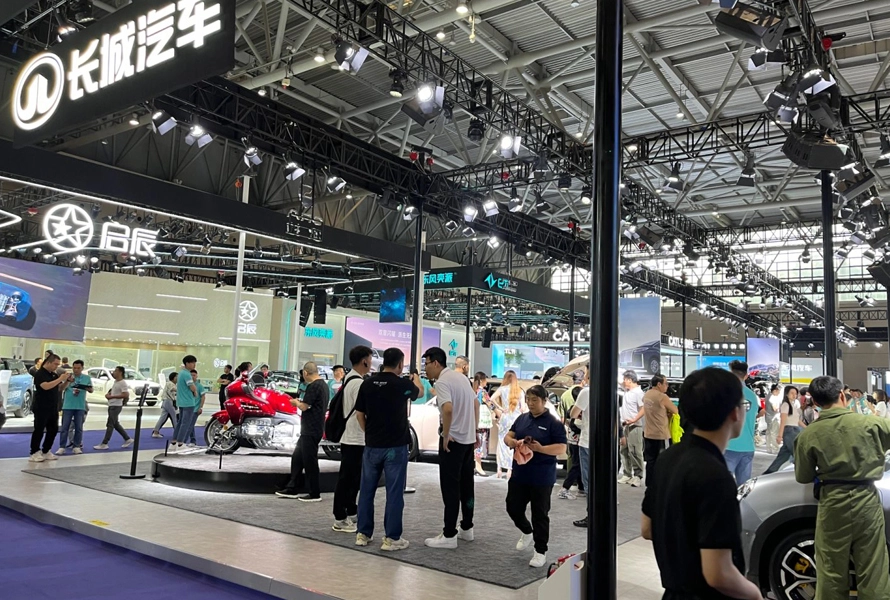

As electric vehicles (EVs) become a cornerstone of global transportation, their performance in extreme weather conditions is under scrutiny. A recent Norwegian winter test revealed that some Chinese EVs, notably the Human Horizons HiPhi Z, are setting new standards for cold-weather performance, outperforming established competitors like Tesla. With just a 5.9% range reduction in freezing conditions, the HiPhi Z demonstrates how Chinese manufacturers are closing the gap with industry leaders.
Norway, a global leader in EV adoption, conducts rigorous winter tests to evaluate how electric vehicles perform in sub-zero temperatures. These tests are critical, as cold weather often exposes weaknesses in battery efficiency and range retention. The latest results have turned heads, with Chinese EVs stealing the spotlight from traditional frontrunners like Tesla.
The Human Horizons HiPhi Z, a premium Chinese EV, achieved an impressive 5.9% range loss in the Norwegian winter test, significantly outperforming many competitors. This minimal reduction highlights the HiPhi Z's advanced battery technology and thermal management systems, making it a standout choice for drivers in cold climates. Its ability to retain nearly all of its range in freezing conditions sets a new benchmark for EV performance.
While Tesla has long been a leader in the EV market, some of its models underperformed in the Norwegian test compared to Chinese EVs like the HiPhi Z. Reports indicate that Tesla's range loss was higher than expected, raising concerns about its cold-weather capabilities. This gap underscores the challenges even top-tier brands face in optimizing EVs for extreme conditions.
The Norwegian test highlights a broader trend: Chinese EV manufacturers are making significant strides in cold-weather performance. By investing in advanced battery chemistries and efficient thermal management, brands like Human Horizons are challenging the dominance of established players like Tesla. This shift signals a new era of competition in the global EV market.
Cold temperatures pose unique challenges for EVs, affecting battery performance and overall range. Understanding these factors is key to appreciating the significance of the HiPhi Z's performance in the Norwegian test.
Low temperatures slow down the chemical reactions within EV batteries, reducing their efficiency and capacity. This can lead to a noticeable drop in driving range, particularly for batteries not optimized for cold weather. Advanced thermal management systems, like those in the HiPhi Z, help mitigate this issue by maintaining optimal battery temperatures.
Cold weather increases energy demands, as EVs rely on heating systems to keep cabins warm and windows defrosted. These systems draw power from the battery, further reducing range. Efficient heat pump systems, increasingly common in Chinese EVs, minimize energy loss by providing effective heating with less power consumption.
The chemistry of lithium-ion batteries, commonly used in EVs, is sensitive to cold. Freezing temperatures can cause lithium plating, which degrades battery health over time. Chinese manufacturers are addressing this through innovations like improved electrolytes and battery designs tailored for low-temperature performance.
While cold weather remains a hurdle for EVs, technological advancements are helping to close the performance gap. Chinese manufacturers, in particular, are leading the way with innovations that enhance range retention and reliability.
Chinese EVs like the HiPhi Z benefit from cutting-edge battery designs that prioritize cold-weather resilience. For example, optimized electrolytes and thermal management systems maintain battery performance in sub-zero conditions, ensuring minimal range loss and long-term durability.
Modern EVs are increasingly equipped with heat pumps, which provide efficient cabin heating compared to traditional resistive heaters. These systems, widely adopted by Chinese manufacturers, reduce energy consumption, preserving battery range even in harsh winter conditions.
The Norwegian winter test has spotlighted the remarkable progress of Chinese EV manufacturers, with the Human Horizons HiPhi Z achieving an impressive 5.9% range loss in freezing conditions. By outperforming competitors like Tesla, Chinese EVs are proving their mettle in challenging environments. Innovations in battery technology, thermal management, and heat pump systems are helping brands like Human Horizons overcome the traditional limitations of EVs in cold weather. As Chinese manufacturers continue to push the boundaries of EV performance, they are not only challenging industry leaders but also redefining what's possible for electric mobility in extreme climates.